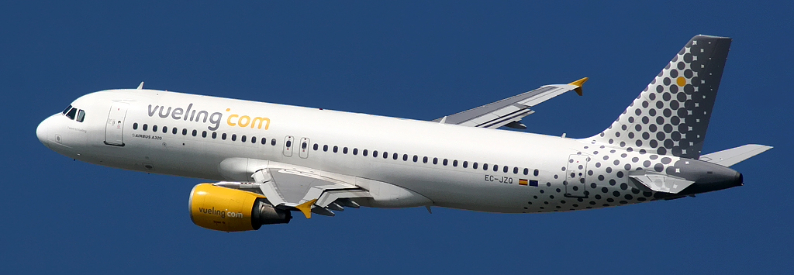Vueling to Test Shark Skin Film for 4% Emission Cut

Vueling has entered into a Letter of Intent with Australian aerospace technology firm MicroTau to trial a shark skin–inspired surface film on its narrow-body fleet in an effort to reduce drag and cut carbon emissions by as much as four percent. Announced on May 23, 2025, the agreement makes Vueling the first European carrier to partner with MicroTau and paves the way for certification of the Riblet Modification Package—the company’s proprietary film that mimics the microscopic grooves, or riblets, found on shark skin. Although shark skin appears smooth to the naked eye, its surface is textured with millions of tiny, tooth-like scales that channel fluid flow and reduce turbulence. By applying a tailored version of this riblet structure to an aircraft’s exterior, MicroTau’s solution promises a drag-reducing effect without any structural alterations to the airframe, potentially lowering fuel burn and CO2 output across thousands of flights each year.
As part of the collaboration, Vueling will assist MicroTau in validating the performance and durability of the shark skin film under real-world operating conditions, from high-speed cruise to repeated takeoff and landing cycles. Franc Sanmartí, Director of Sustainability at Vueling, emphasized that once fully certified, the riblet technology will represent an “important milestone” in the airline’s broader decarbonization strategy, reinforcing its commitment to environmental innovation and improved fuel efficiency. By integrating cutting-edge solutions like the Riblet Modification Package, Vueling aims to accelerate emissions reduction beyond incremental improvements in engine performance and operational optimization.
MicroTau has already attracted interest from major operators on both sides of the Atlantic. In February, the firm signed an agreement with Delta Air Lines to evaluate the shark skin film on a Boeing 767 freighter, testing adhesion, wear resistance and aerodynamic benefits during cargo operations. The technology was also trialed on Boom Supersonic’s XB-1 demonstrator, where riblet-coated panels helped verify performance gains at Mach 2 speeds. Henry Bilinsky, MicroTau’s CEO, underscored the urgency of deploying proven decarbonization measures that deliver immediate cost and sustainability benefits, noting that many aviation emissions solutions remain years or decades from full scale. “Efficiency is hard-won in aviation,” Bilinsky said. “Our riblet solution offers operators a tangible way to reduce fuel consumption and operational expenses today, complementing longer-term investments in sustainable aviation fuels and electric propulsion.”
The choice of Vueling as MicroTau’s European launch partner reflects the airline’s strong performance record and its parent company’s support for innovation. As part of the International Airlines Group, Vueling has invested in fleet renewal and digital initiatives to streamline operations, and its network of short-haul and medium-haul routes provides an ideal testbed for new surface technologies. The certification process will involve wind-tunnel trials, computational fluid dynamics simulations and an extensive flight-test campaign, with riblet panels applied to flight-critical zones such as wing leading edges, fuselage sections and tail surfaces. Success here could lead to broader adoption across IAG’s subsidiaries, including British Airways, Iberia and Aer Lingus.
Beyond drag reduction, riblet surfaces have potential maintenance and lifecycle advantages. Unlike paint or external modifications that add weight or require frequent reapplication, MicroTau’s film is engineered for long-term adhesion and resilience against UV exposure, de-icing fluids and particulates, minimizing recurring costs. Additionally, the technology’s modular application allows targeted retrofits on aging fleets, accelerating environmental gains without waiting for new aircraft deliveries.
If Vueling’s trials confirm the laboratory-tested four percent drag reduction, the ripple effects could be significant. Across Vueling’s 100-strong fleet and annual flights exceeding 150,000 sectors, even small per-flight savings translate to millions of liters of jet fuel spared and thousands of tonnes of CO2 avoided. With airlines globally under pressure to meet net-zero targets by 2050 and regulators tightening emissions standards, surface treatments like shark skin riblets may become a mainstream retrofit option alongside sustainable fuels and aerodynamic enhancements. As Vueling and MicroTau advance through certification, the industry will watch closely to see whether the humble shark’s design can truly reshape the future of cleaner air travel.
Related News : https://airguide.info/?s=Vueling
